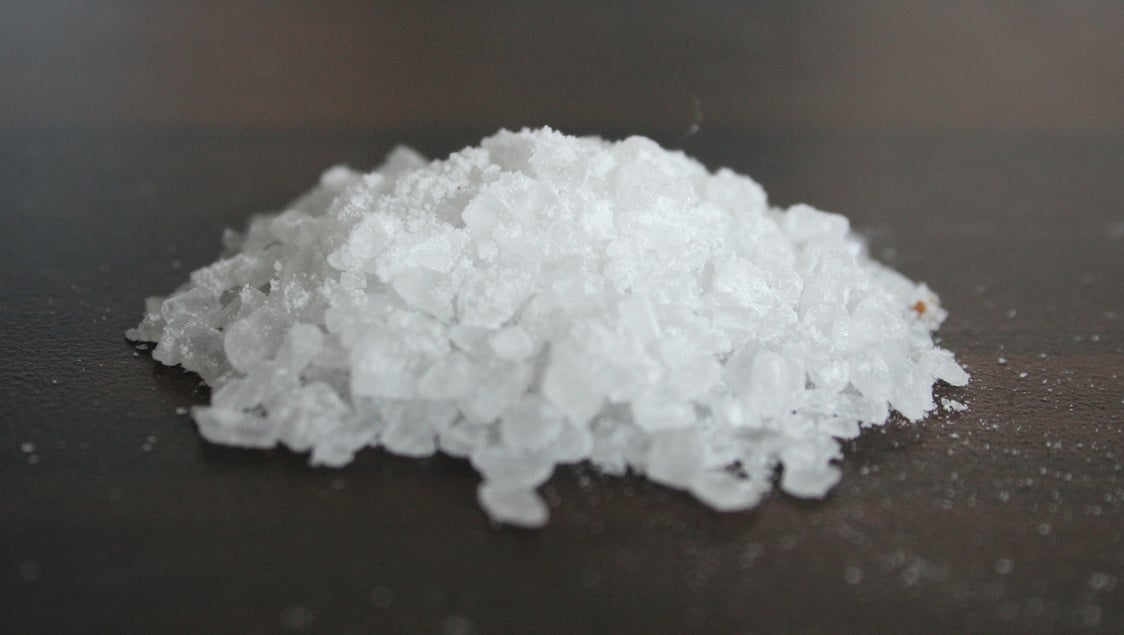
Issue 047
January 2010
I’m cutting a lot of weight for my next fight, so I’ll be pretty dehydrated after the weigh-in. What should I do to recover? I figure I just need to drink lots of water, right?
No. It’s important not to drink water when you’re dehydrated, because it can actually be dangerous. As well as the liquid, you also need to replace the salt that has been lost.
Salt? What’s the point of that? I thought salt was bad for you!
Too much salt is bad for you, but some is essential. Without it you can get a condition called hyponatremia, where you have too little sodium in your blood. Athletes, especially distance runners, occasionally die from this.
Okay, so if I put some salt in a glass of orange juice that should do the trick?
Not quite. As well as salt you need potassium and sugars. Fruit juice contains sugar, but a lot of it is in the form of fructose, which needs to be processed by your liver before you can use it. The fastest sugar for your body to absorb and process is glucose. It is possible to buy glucose and lo-salt (potassium salt) and mix your own recovery drinks, but you need to get the proportions right.
That all sounds a bit complicated for me. Is there an easy way to do this?
You can buy rehydration drinks from a chemist. Look for ‘diaralyte’ in the UK or ‘pedialyte’ in the US. These provide the electrolytes (scientific word for ‘salts’) that you need. If you buy them in powder form, make sure that you mix them with the correct amount of water given in the instructions. If you have cut a significant amount of weight then you will need several. Make sure you sip the drink slowly to allow your body to absorb it without becoming bloated.
What about food? What should I be eating?
Once again, the key with food is to eat little and often. Don’t sit down and eat a large meal straight away, but try to eat something every 10–15 minutes. After cutting weight, the priority is to get carbohydrates into your body, so it is best to avoid anything with too much fat. Large steaks, for example, are probably best avoided because they will slow your digestion down. Throughout the day, eat high-carbohydrate foods (e.g. pasta, rice, potatoes, bananas) to replace that lost during the weight cutting process.
How about fight day?
What to eat on fight day is partly down to personal preference. Stick to foods you like and avoid anything new. Aim to have your last large meal three to four hours before the fight, or a smaller one two to three hours before. The best option is something high in carbohydrate and low in fat, with a small portion of protein (e.g. lean meat). Avoid large quantities of meat, especially red meat, because it is slow to digest. Make sure you eat enough, but avoid overeating.
Whether to snack closer to the fight itself is more controversial. Up to an hour before, small snacks are no problem. The evidence is somewhat mixed as to whether drinking carbohydrate drinks close to the fight itself helps or harms your performance, but it is unlikely to have a huge effect either way. Try it for yourself in training and see what works for you.
If you are fighting away from your home town make sure in advance that you can get the food you want on the day of the fight. If you aren’t sure then take food and snacks with you.
I always eat a fried breakfast before I fight. I don’t want to start changing things now.
It’s true that you should never try something new for the first time just before a fight. If you are used to a particular meal before a fight then the benefits of sticking to what you are used to may outweigh the benefits of doing the ‘correct’ thing. In-between fights try to arrange a ‘simulation fight’ (ideally with a full weight cut beforehand), so that you can practice your nutritional strategy and see how your body responds. Every fighter is slightly different.
Professional fighter Rosi Sexton is a sports therapist and osteopath-in-training. She has fought in countries such as Russia, Canada and the USA, and is ranked as one of the top competitors in her weight class.










